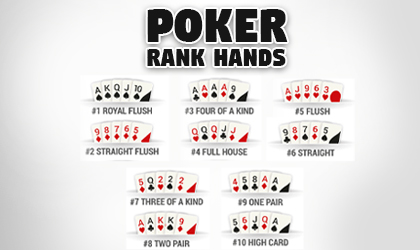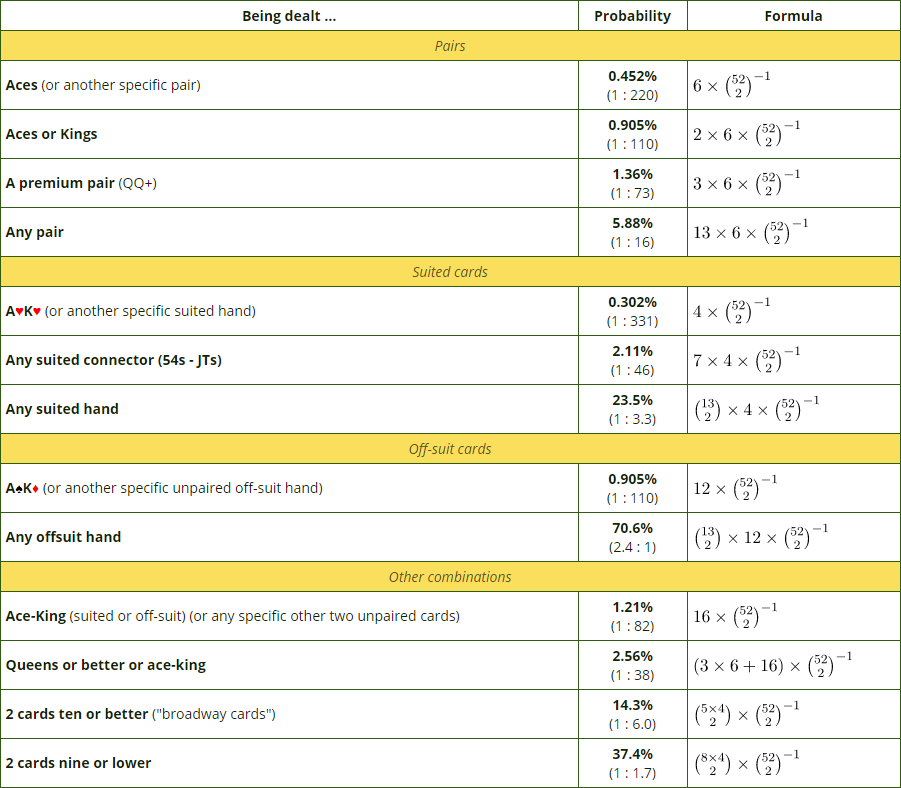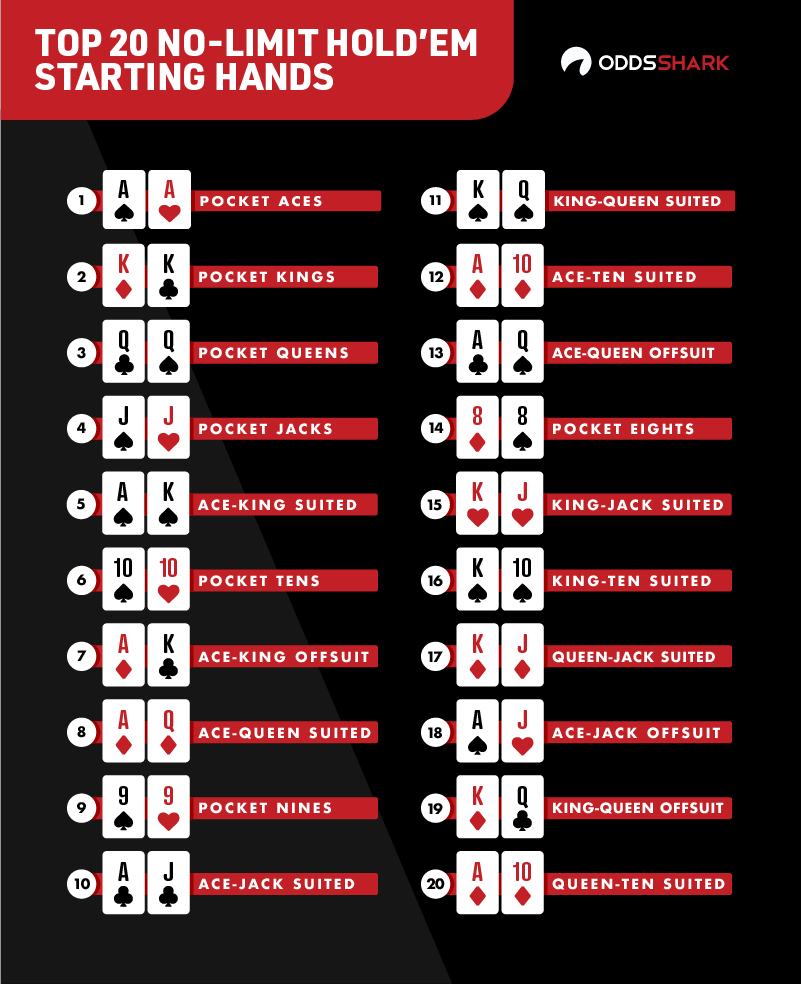Is A Pair Of Kings Good In Poker

Hands which worth to raise with: a pair of Aces, Kings, Queens, Tens and Jacks but also the following combinations: Ace with King, Ace with. LearnWPT analyzes a hand in which a player three-bets plop and continues on the flop, thereby setting up what appears to be a 'pot committed' situation.
You want to win. It's a passion. It's one of the reasons you play poker in the first place. There are no excuses. It's you against others. There are no teams. If you win it's the product of your own play.
You hate to lose. While you were learning the game these two strong impulses – the desire to win and the aversion to losing – worked well to keep you out of trouble. You learned a tight aggressive style that had you betting aggressively when you were the favorite and folding when you weren't.
But in poker, the key to success is not avoiding risk. There are painfully few bets that come without some risk of loss. You must learn how to weigh the risk with the potential reward. It is a more difficult task than just minimizing risk – but it is a critical one. You must learn how to figure out whether you, in the words of noted poker theorist David Sklansky, have the best of it. That is learning how to tell whether a bet is a good bet or a bad bet.
A good bet is not a bet you are sure to win. It is rather a calculated risk where the reward outweighs the risk. If I play a simple game of heads or tails with an honest coin and offer you $2.00 if you win but you only need to pay me $1.00 if I win, then that is a good bet for you. True, you may lose $1.00. But since there's an equal chance that you'll win – and when you do win you'll win $2.00 – that is a good bet. In the long run you'll end up ahead.

The same theory defines a good bet in poker. We must keep our natural aversion to loss from interfering with our good judgment. Though being risk averse is probably a better flaw than being a chronic gambler – and it may help us win very small sums of money at the poker table – in the long run it will surely keep us from winning our share of the money. We must analyze situations when our gut tells us to avoid the risk and see whether it may make more sense, mathematically, to take the plunge and risk the loss for a chance at the win.

Is A Pair Of Kings Good In Poker
Here's an example. The game is $20/40 stud with a $3 ante and $5 forced bet. The bring-in is to your immediate left. You have ( ) . No aces, kings or hearts are out. Five players call the bring-in; you know them to be pretty loose. You're known as being tight. What do you do?
The rules of starting hands that you've been following religiously tell you to fold. So does your gut that hates to lose. You have no pair, no 3-flush or 3-straight, and no three big cards. You like these rules because they help you avoid risk. You don't have to do much thinking. You just play tightly, only playing when you have a hand that has a good likelihood of winning. Here there are really only six cards that will help you. So you naturally fold.
But look again. There are eight antes, six bring-ins, making the pot $54 and you will end the betting just by calling $5.00. You're getting nearly 11 to 1 pot odds with your call. If you hit an ace or a king you will probably be in the lead and have an excellent chance of winning a large pot, since no one will be able to put you on a large pair. If you hit a seven, your observant opponents will probably put you on trip sevens and fold to your bet. In this loose passive game, if you hit a heart, you might be able to see your next two cards cheaply as well, since no one seems to raise much. Thin though the odds of drawing it are, in this game you might be able to draw your flush cheaply. And if the betting gets aggressive and you don't improve at all, on fourth street you can easily get away from the hand – having only spent $5.00 for your troubles.
After giving it some thought there's no question but that a call is the right play – strict rules of tight play and your gut that hates the prospect of losing to the contrary.
What Is A Pair Of Kings Called In Poker
In my book, Winning 7-card Stud, I stress that mechanical tight play is generally the right approach for the beginner. But it's critical for the serious player that he not stay with that narrow approach to the game – at least not if he wants to become a winner. Mechanical tight play, that has you folding and raising based on pre-established rules designed to keep you out of trouble, is useful as a tool to keep your variance down while you are learning the game. But you can't win seriously with that style. Later in the book I show players how to loosen up to increase their chances of winning. You must learn how to overcome your risk aversion to make bets when you have the best of it though you will probably lose the hand. You need to learn when it is right to enter a hand that you are likely to lose – because the large amount you will win on those few occasions when you do win will be more than the total amount you will lose on those many occasions when you do lose.

Here's another example. You've been playing in a game like the one described above. Only it's now sixth street. There are five players who have reached this round, including you. You started with a low pair and a big kicker and now have two low pair. The pairs are live but you doubt you're ahead. There has been a bet on every round, led by someone showing a queen whom you have put on a pair of queens and maybe queens up. No one has paired a door card. One hand has an exposed pair of nines, but nines are dead. There is a player who bets now, having just hit his third exposed heart. Hearts are moderately alive and you think he may have just hit his flush. He gets two callers, one from the queen and one from the exposed pair of nines. The other players have folded. You only have a low two pair. You figure to be in third or fourth place. Your gut tells you that pulling a full house is a long shot. You hate losing. You're tempted to fold because you know that you probably won't hit your full house and will therefore probably lose. You hate to lose.
Don't fold. Just do a little math. Four cards give you the full house and most likely winner. Twenty-seven cards are unknown. There are four winners and twenty-three losers. You will lose that bet a little less often than six times for every one time you'll win. The pot now has a little over $500 in it. You get to see if you get your card for the $40 call.
The math is easy. $500 to $40 versus 6 to 1. It's not even close. You're getting better than 12 to 1 on your bet for a proposition that has a better than 6 to 1 chance of coming in. This is definitely a good bet. Even though you will lose this bet the vast majority of the time, you must learn to make the call because of the enormous return it will bring you when it does hit.
To play winning poker you must be willing to lose much of the time for a chance of winning some of the time. This is a hard lesson for the risk adverse player who is naturally inclined to play a tight-aggressive game. But it is a necessary one.
Poker is not a complicated game. In a few minutes you can learn the basic rules and understand which of the few hands are the best. That is the easy part. Really mastering the art of gaming and developing a poker strategy that turns the game into a money press can take a lifetime.
It is important for beginners to find a middle ground between fun and excitement at poker and the possible losses that accumulate quickly if you don't know what you are doing. How do you go about becoming the next big poker star? Here are five poker strategy tips for beginners. If you want to test out your skills why dont you visit the best online casinos at https://www.topratedonlinecasino.com/
Tip 1: Be more aggressive than you might like ...
The only way to win in poker is to bet - and the only way to win a lot is to bet a lot. Poker is a game of timed and concentrated aggression. Once you've mastered the basics of the game, you'll also know when to use a more aggressive poker strategy at the table.
Many inexperienced players are just too cautious for too long. They check when they should bet and only call when they should raise. If you get a good hand, such as high pairs or A-K or A-Q, you should play more aggressively than you might think. These are excellent cards to start with. Therefore, when playing at a full table, you must ensure that players with worse cards exit - or force them to pay so they can stay in the game. There is nothing worse than playing a pair of kings down just to be beaten by 8-4 by someone who checked before the flop and miraculously got a straight. Let everyone pay to see these cards and drive as many and as early as possible out of the pot. With six people in the pot, your basic chances of winning are only 17%. With only two participants, your chances increase up to 50%.

Careful play also makes it much easier to be recognized as a passive player by other opponents. If you rarely bet or raise, stronger players will soon push you around knowing that you are giving in under pressure. If you bet big, the other players will immediately notice that you have a strong hand and everyone will pass quickly and reduce the possible win you get paid.
Take this poker strategy tip for beginners to heart: an aggressive game creates big pots. If you have a good hand, get as much as you can from the other players. This is how poker is the most fun and exciting.
Tip 2: ... But you also have to be patient
But being aggressive doesn't mean putting money on a bad hand and putting all your chips in the hope of getting a great card on the river. This is a surefire way to reduce the height of your stack very quickly.
A basic smart poker tip, especially for beginners, is to pass with far more hands than to play. For many players, this sounds like a terribly boring way to spend an evening - just sit at the table while everyone else is playing.
Don't forget that most of the hands dealt will simply be bad cards based on the law of probability. If you don't have a strong hand, you should pass and do it immediately. Use the time to watch the other players at the table and study how they play. If you don't have to worry about your own hand, you can concentrate better on the others.
The bottom line should be your poker strategy: wait until the odds are in your favor and then use your aggression to get the pot.
Tip 3: watch out like a shooting dog
There is an old saying in poker: play the player and not your cards. This is another way of saying that poker depends on the situation. Your hand is usually only good or bad in terms of what your opponent is holding. K-K is a fantastic hand, but if another player holds A-A, the kings lose 82% of the time. Imagine it was the other way around: You hold A-10 while the other player is holding J-J. The flop is 10-8-6. Suddenly the pair of 10 with ace kicker only has a 20% chance of winning.
Is A Pair Of Kings Good In Poker Room
How do you know what the other one has? By watching your opponents and learning how to play. Imagine the situation with the 10-8-6 flop while you have A-A. What do you learn from it? Have you ever seen your opponent sitting opposite you play a big hand rather slowly? You may want to play a little more carefully with your aces.